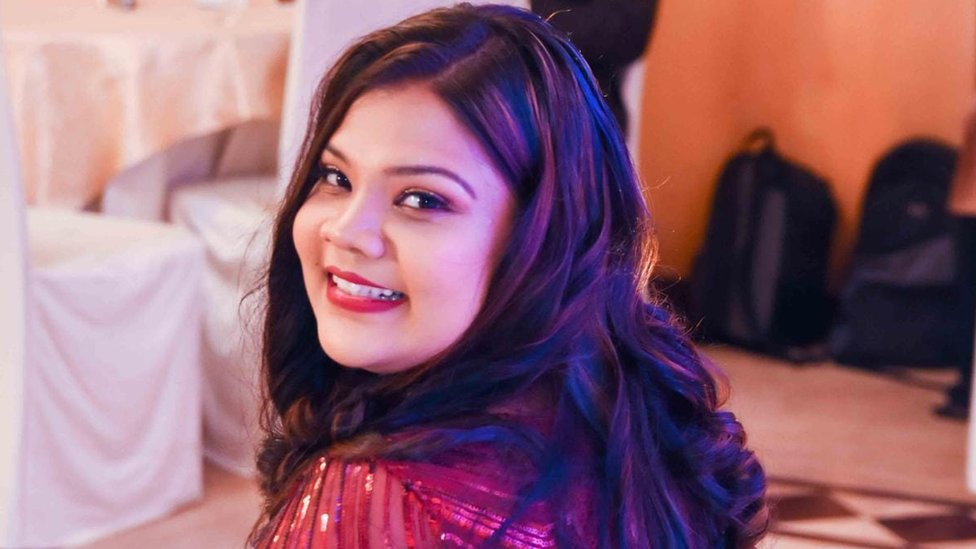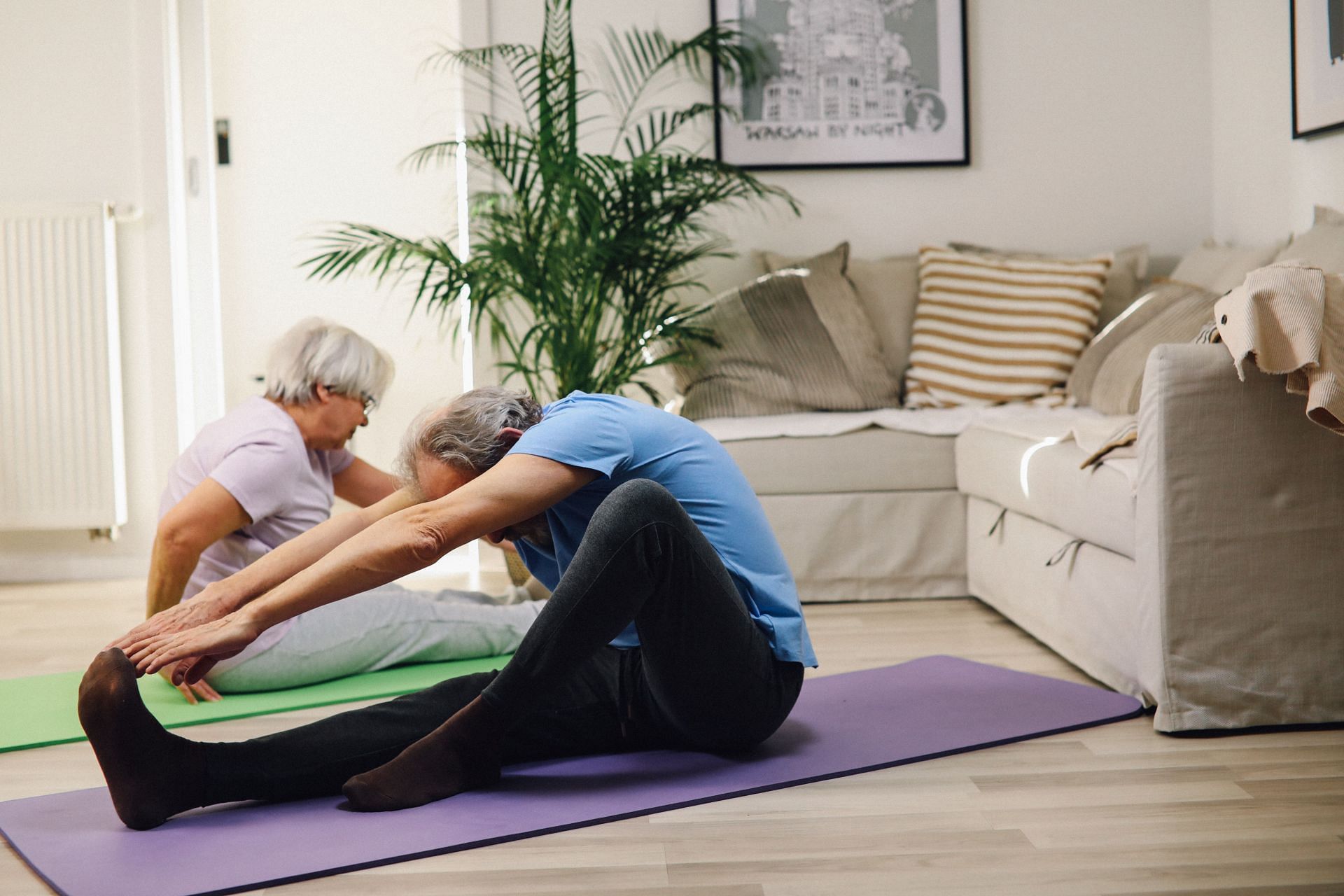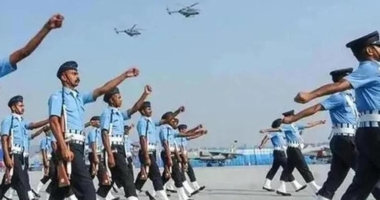Ruchelle Barrie tries to learn more about her family’s past
Ruchelle Barrie recalls feeling out of place at school.
Her name was frequently misspelled and pronounced, and her fluent English made her stand out among her classmates in the Indian city of Mumbai, who were more likely to speak Hindi or Marathi.
But with that spotlight came questions: Where are you from? Is your family from India? What is an Anglo Indian?
The last question was the hardest to answer, so she learned to dodge it by publicly distancing herself from a “core” aspect of her identity.
The term Anglo-Indian generally refers to people of British and Indian descent. But legally it means Indian citizens who are of paternal European descent – meaning their paternal ancestors could be British, French or Portuguese, reflecting India’s long history of colonization.
Ms Barrie, now 30, is of French father’s side and British mother’s side – she still has questions about her identity and where she really fits in.
“But now I’m more comfortable with it and want to know more about my ancestors,” she says. So she joined a Facebook group for Anglo Indians, where she asks questions about the community and their culture.
Ms. Barrie is among several young Anglo-Native Americans trying to learn more about their roots and preserve the cultural identity of their community, which many fear may be forgotten.
Some research and document their family history, rekindling bonds with long-lost relatives; others find ways to preserve shared memories and old recipes. In the process, they find new ways to nurture a sense of belonging within the dispersed, dwindling community.
Muna Beatty and her husband Michael have traced their ancestry
Experts say the number of Anglo-Indians has been steadily declining since 1947 when the British left India, but there are no official figures to record this. India’s last census in 2011 counted just 296 Anglo-Indians, a number dismissed as “ridiculous” by community members.
Clive Van Buerle, a board member of the All-India Anglo-Indian Association, says their membership figures suggest there are around 350,000 to 400,000 Anglo-Indians in the country.
Many emigrated to countries such as England, Australia and Canada, particularly in the years following India’s independence in 1947. Many have also intermarried outside the community in the decades since, leading to a dilution and blending of cultures.
The history of the Anglo-Indian community can be traced back to the 16th century when the Portuguese colonized parts of India. Author Barry O’Brien, in his book The Anglo Indians: A Portrait of a Community, writes that the Portuguese encouraged soldiers to marry Native women in order to “create a community loyal to the colonizers, yet still in the colonies feels comfortable”. The British later adopted this strategy.
“Anglo-Indian identity emerged from this fusion of Eastern and Western cultures,” says academic Merin Simi Raj.
But this blending of cultures was also a source of uneasiness and alienation.
“In the past, the community was discriminated against by Britons because of their skin color and mixed race. They were also viewed with suspicion by local Indians because of their loyalty to the Crown,” says Ms Raj.
That sense of alienation hasn’t entirely gone away – Anglo-Indians were outraged when their quota of two seats in Parliament was scrapped in 2019.
“It’s as if your identity is not recognized by your government,” says Mr. Van Buerle.
As Anglo-Indian associations campaign for political representation, individuals like Ms Barrie are forging kinship and solidarity online.
Ms Barrie says she grew up in a “Pukka Anglo-Indian home”, listening to country music stars Merle Haggard and Buck Owens and enjoying meatball curry, coconut rice and devil’s chutney. Even then, she says, she’s hungry to learn more about her community, from colonial meal recipes to information about long-lost family members.
Bridget White-Kumar, who has written several cookbooks – her most recent has “simple recipes for making Anglo-Indian food in a microwave oven” – says many young people are looking for “simpler, easier and hassle-free ways” to make Anglo-Indian food .
“The Anglo-Indian community has borrowed from and contributed to the culinary landscape of India, so it’s important to preserve our recipes by passing them on to younger generations,” she says.
Bridget White-Kumar has written several books on Anglo-Indian cuisine
Many try to better understand their own identity by researching their family history.
Bangalore-based Muna Beatty and her husband Michael use genealogy websites to unearth old records like birth, death and marriage certificates, and visit military offices, churches, cemeteries and old colonial bungalows to find out where their ancestors lived, worked or were buried became .
Ms Beatty says the search has helped them reconnect with family members around the world – they have now started a WhatsApp group called Finding the Beattys.
For Marcelle Britto, the exercise has helped her better understand her mother’s unique childhood. Her mother, who has Irish ancestry on her father’s side, had a very different life from hers – growing up in a huge colonial bungalow with dozens of domestic helpers and being invited to tea parties and ballroom dancing.
Mrs. Britto has managed to trace her ancestors back to the 17th century. “My mother’s stories and my own mixed identity make more sense now,” she says.
Until a few decades ago, says Mr Van Buerle, Anglo-Indians wanted to know about their ancestry because it might help them migrate abroad. But as the community in India successfully assimilates, people do not leave India in the same numbers.
“The quest to understand one’s origins and identity is no longer motivated by the need for evidence, but by the need for meaning – it’s an exciting journey to learn more about oneself and one’s history,” he says.
Cecilia Abraham’s paternal grandparents at her aunt’s wedding
Hyderabad resident Cecilia Abraham, 47, runs a social media crowdsourcing project called Anglo Indian Stories, which encourages people to share family photos and old memories.
Although she had a very ‘Anglo-Indian upbringing’, Mrs Abraham says she didn’t know much about her origins. Her father preferred to refer to himself as “an Indian Christian”.
“One of the stereotypes that surrounds the community is that Anglo-Indians drink too much and party too much and aren’t very educated,” she says. “My father didn’t want us to be seen in that light.”
Project staff have described their families’ connections to India’s railways and military, and what life was like before and after independence. Some talk about the pain of losing contact with close relatives.
Ms. Abraham hopes her project will help people feel proud of their identity.
“If we like something, we talk about it, we take care of it,” she says. “And that’s how things, including culture, are preserved for future generations.”
Read more India stories from the BBC:
Don’t miss interesting posts on Famousbio










